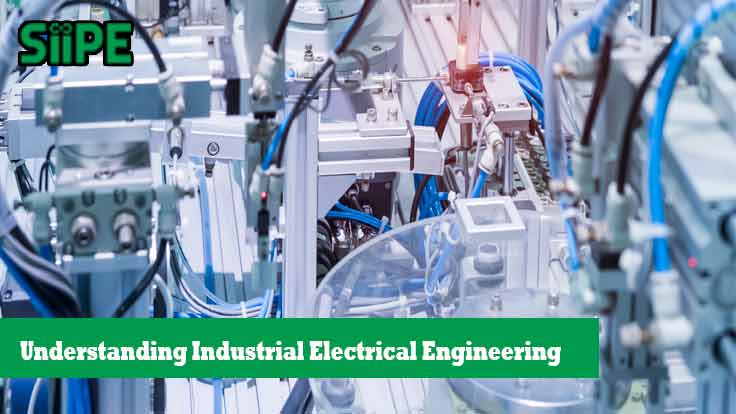Industrial electrical engineering is the backbone of modern manufacturing, automation, and infrastructure. It combines principles of electrical engineering with industrial applications, ensuring systems operate efficiently, safely, and cost-effectively.
What Is Industrial Electrical Engineering?
Industrial electrical engineering focuses on designing, implementing, and maintaining electrical systems in industrial environments. These include power distribution, machinery control, automation systems, energy management, and process instrumentation.
Electrical engineers in industrial settings work with:
- Power systems (HV and LV)
- Electrical drives and motors
- Industrial automation and control systems (PLCs, SCADA)
- Electrical safety and compliance
This field demands not only technical expertise but also practical knowledge of industrial standards, safety protocols, and energy optimization strategies.
Key Applications in Industrial Environments
Power Distribution and Management
Efficient energy usage is critical in industries. Engineers design power systems that minimize loss and ensure reliable electricity supply to all machinery and systems.
Automation and Control Systems
Industrial electrical engineers configure programmable logic controllers (PLCs), SCADA systems, and sensors that enable automated manufacturing processes and real-time monitoring.
Machinery and Motor Control
From conveyor belts to robotic arms, electrical engineering ensures precise motor control using variable frequency drives (VFDs), servo systems, and safety circuits.
Energy Efficiency and Sustainability
Industrial operations are increasingly focused on reducing energy costs. Engineers introduce energy-saving measures, like LED retrofits, power factor correction, and renewable integration.
Safety and Compliance
Ensuring installations meet electrical codes and safety standards is a vital role. This includes grounding, circuit protection, and hazardous area classification.
Benefits of Industrial Electrical Engineering
- Enhanced Productivity: Automation and optimized power systems increase operational uptime.
- Improved Safety: Engineering controls reduce risks of fire, shock, or system failure.
- Cost Efficiency: Smart energy systems cut electricity bills and maintenance costs.
- Scalability: Well-designed systems allow future upgrades and expansions.
- Sustainability: Energy-efficient solutions align with global environmental standards.
Skills and Tools Used by Industrial Electrical Engineers
- Electrical CAD software (e.g., AutoCAD Electrical, EPLAN)
- Simulation tools (MATLAB/Simulink)
- SCADA and PLC programming
- Multimeters, insulation testers, oscilloscopes
- Standards like IEC, IEEE, NEC
Industrial engineers must also collaborate with mechanical, civil, and software teams to ensure integrated system performance.
Future Trends in Industrial Electrical Engineering
Industrial IoT (IIoT)
Smart factories are powered by IIoT, where sensors and systems share data in real-time for predictive maintenance and analytics.
Renewable Energy Integration
Industries are adopting solar, wind, and battery storage to reduce carbon footprint and improve energy independence.
AI and Machine Learning
Predictive algorithms help optimize energy consumption and detect electrical anomalies before failure occurs.
Cybersecurity in Electrical Systems
With increasing connectivity comes greater risk. Electrical engineers now integrate cybersecurity into control and monitoring systems.
Choosing the Right Electrical Engineering Partner
When sourcing electrical engineering services or systems for industrial use, consider:
- Proven experience in your sector
- Compliance with safety and environmental standards
- Availability of after-sales support
- Ability to scale with your operations
SIIPE.id connects you with trusted electrical engineering solution providers across Indonesia, ensuring industrial-grade reliability and innovation.
H2: Final Thoughts
Industrial electrical engineering is not just about wiring and circuits—it’s a strategic driver of productivity, safety, and innovation. As industries evolve, so too will the role of electrical systems in shaping their success.
Whether you’re upgrading a factory, planning a greenfield plant, or automating a logistics center, investing in the right electrical engineering solution is key to long-term efficiency.











